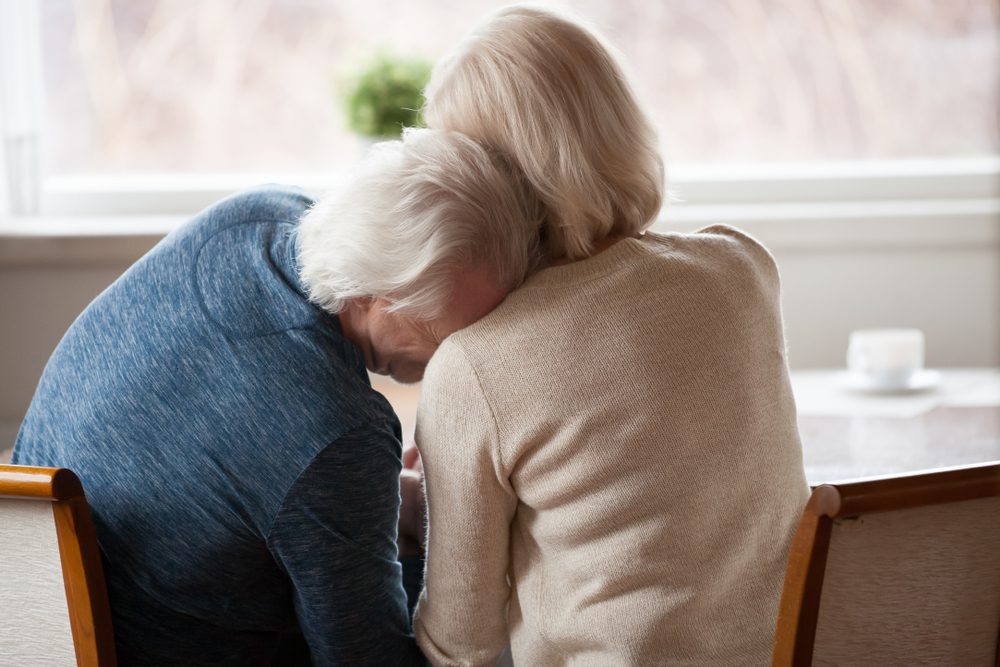There’s a huge emotional impact of caregiver guilt no one talks about.
Navigating the challenging world of caregiving often leads to an overlooked facet: the massive emotional impact of caregiver guilt. Caregiver guilt is a weighty companion, displaying itself in various forms that can significantly impact your mental well-being.
Retirement In USA aims to highlight caregivers’ struggles, addressing the emotional intricacies tied to guilt and providing useful strategies to overcome them. As we embark on this journey, we’ll dissect different types of caregiver guilt, acknowledging the battles unique to each.
Unveiling the emotional layers involved, we’ll guide caregivers through 7 practical ways to face the emotional impact of caregiver guilt, fostering a healthier mindset and promoting self-compassion in the challenging realm of caregiving.
Join us as we navigate the complex terrain of emotions, offering insights and practical solutions for those seeking solace on their caregiving journey.

Types of caregiver guilt:
The emotional impact of caregiver guilt about having negative feelings toward others
It’s typical to have negative feelings toward other individuals from time to time. Researchers pointed out that feeling upset with or even furious at other family members is to be expected.
Caregivers who seek to keep a positive mindset can struggle with guilt over feelings of anger or frustration with others who could have taken responsibility for their loved ones but never rose to the occasion.
The emotional impact of caregiver guilt about wanting self-care
When caregiving is a priority in one’s life, self-care usually takes a back seat. Negligence of one’s health, having struggles with stress management, and letting social activities go can all play into feelings of guilt.
The emotional impact of caregiver guilt about doing wrong by the person you care for
Caregivers might replay specific incidents over and over in their heads, wondering how they could have shown more love or patience. Or how and if they could have made a better decision that might have avoided an injury or accident.
The emotional impact of caregiver guilt about not doing a good job as a caregiver
Some caregivers must balance multiple roles: parents, spouses, employees, and possibly many others. Work, family, and other day-to-day problems may pale in comparison to life-or-death matters linked to caregiving.
This can leave caregivers wondering whether or not they’re making their loved one who is in need of care enough of a primary focus.
The emotional impact of caregiver guilt about disregarding other relatives
Those with a gift for providing compassionate care might frequently fall into the caregiver role. Caregivers may also find they’re the go-to person for family members who are in crisis mode.
Besides being incapable of providing crisis support to any other friends or family members when stretched thin by caregiving, they can also find that they’re missing out on valuable time with their children, spouse, and others who are important to them.

How can caregivers care for themselves while also caring for others?
Evaluate your current caregiving situation
Caregiving responsibilities, tasks, and stress levels tend to increase over time. And the sad fact is that many only notice once they get overwhelmed, burned out, or develop their own health issues.
That’s why it’s essential to take a step back every once in a while, reassess your caregiving position, and notice how things have altered over time. You might come to the realization that you’ve added more and more to your to-do list.
Every additional responsibility takes up valuable time and energy. And it takes a toll on not only your physical health, but your mental health as well.
Or it might be that the level of care the person needs has increased to the point where it’s too much for one person to manage. Things could still be manageable, but maybe you could use help with specific tasks like housekeeping, meals, or home maintenance.
Get help
Getting some assistance is essential for maintaining long-term caregiving and preserving your health and overall well-being. If you can get help from the individuals you think should be helping, that’s a fantastic situation.
But if that isn’t possible, be open to getting help from any other source you can. Don’t just deal with the emotional impact of caregiver guilt on your own.
Family members
Some family members are quick to find ways to contribute and help with caregiving. The best thing you can do is to take them up on their offers to help and let them know what you require.
Others might want to help but don’t know what they can do and aren’t assertive about figuring out how they can help. For family members in this category, you should learn to openly communicate about the specific things you need help with and ask for their assistance.
For those who refuse to contribute, no matter how many times you’ve requested, it could be time to save your energy and move on to finding other sources of support.
Recognize the emotion of guilt and put a name on it
Guilt is a tricky emotion, and it can be hard to put a name to it. According to experts, pushing guilt to the back of your mind can create many other problems that affect both the caregiver’s quality of life and their capacity to care for others.
Disregarding the guilt can lead to troubles with sleeping, eating, and concentration. As a result, you can end up with unhealthy methods of coping with the stress that comes with caregiving.
This can include substance abuse, stated an article for the Mayo Clinic. For numerous caregivers, guilt is a combination of emotions, including anxiety, shame, embarrassment, frustration, and resentment.
Journaling or speaking to a therapist or trusted friend about these emotions can be a positive step toward managing guilt.
Work towards forgiveness and understanding
As humans, we try to do the best we can with what we’re given. The The emotional impact of caregiver guilt over breaking past promises to loved ones or speaking in sharp tones during a challenging moment can be burdensome to overcome.
But self-forgiveness is the secret to moving forward. Caregivers might also need to forgive the person they care for due to past wrongs they may have committed. We understand that this can be difficult. But it’s worth it in the end.
The significance of forgiveness at the end of life is that it can bring healing to the individual who is compassionate and to the person who’s being forgiven. It can also affect the family and the greater community of relationships.

Set aside and prioritize some self-care time
Many caregivers don’t just move self-care to the back burner…they take it off the stove entirely due to the The emotional impact of caregiver guilt. An editor at Harvard Health Publishing urges caregivers to prioritize self-care. Your body has a natural way to fight stress.
The anti-stress system is known as the “relaxation response,” which the parasympathetic nervous system regulates. You can consciously activate the relaxation reaction through mind-body practices like meditation, yoga, tai chi, and deep relaxation techniques.
One thing is clear, though: caregivers must make time for self-care and relaxation to succeed in their helping role.
Get the community involved
There are many community organizations and county or city governments that have volunteer programs assisting local community members.
To learn more and receive some additional help, check with the Area Agency on Aging, which is a county government service, local faith organizations like synagogues and churches, and service organizations like Rotary Clubs to learn about available volunteer programs and how they could come to your aid.
The Eldercare Locator, a public service of the US Administration on Aging, is also an excellent tool you can use to find nutritional, financial, and more support.
We hope you found this post on emotional impact of caregiver guilt insightful. Be sure to let our readers know if you have any other tips for them in the comments section below.
Meanwhile, Retirement In USA is here for all your aging needs. For instance, we highly recommend you also read: 8 Clever Ways to Maximize Your Social Security Spousal Benefits




















2 Responses
Great information!
Very informative